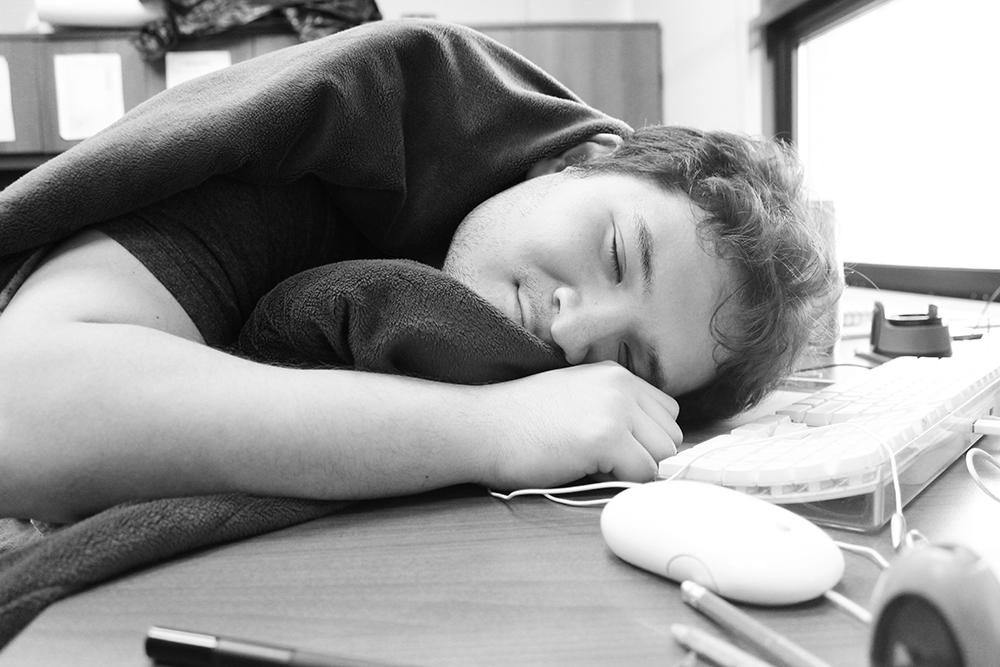Matt Dionne | Sports and Health Editor
Featured image by Alexia Lawson
Summer is finally here and many students are enjoying the lack of responsibilities associated with time off from school.
One particular benefit that summer brings is the freedom to sleep in. With tuition costs constantly rising, more and more students are forced to try and balance work and school to ensure they can pay their fees. This balancing act often forces them to give up certain aspects of their life, and one of the most common things sacrificed is sleep.
The National Sleep Foundation published a study in February 2015 that stated people between the ages of 18 and 25 should be getting between seven and nine hours of sleep each night, while people between the ages of 14 and 17 should be getting eight to 10.
People who don’t get more than six hours of sleep on a nightly basis have been found to be clumsier and less focused.
Clete Kushida, director of Stanford University Center for Human Sleep Research, found that people who aren’t getting enough sleep often have trouble focusing, impaired depth perception and slowed reflexes.
Not getting enough sleep on a nightly basis can also lead to other more serious health concerns, including weight gain. When your body doesn’t get enough sleep it starts craving high-calorie foods to make sure that you have the energy you’ll need if you’re going to be awake longer. Another side effect is a lower immune system, leading to difficulty in fighting off illnesses. According to a 2009 study, people who get less than six hours of sleep each night are three times more likely to develop a cold. They also have a harder time recovering from illnesses such as the flu.
Probably the most frightening side-effect of lack of sleep is the increased risk of heart disease and stroke.
According to Atlanta cardiologist David E. Montgomery, people who don’t get enough sleep put more pressure on their heart, which leads to a higher risk of heart-related illness.
Heart disease is the leading cause of death in North America, with one in four deaths linked to it. A recent study found that people over the age of 45 who got six hours of sleep or less on a consistent basis doubled their chances of stroke and heart attack, and are more likely to experience heart failure.
So the next time you’re up late and Netflix asks if you’re still watching, hit no and go to sleep.



I highly recommend meditation at least twice a day for at least 20 minutes each session. It is hard at first, but after a few months of effort it gets easier.
It does a lot to help get a better night sleep and just helps you have a clearer peaceful mind throughout the day. There are many resources online to help, I recommend focusing on your breath but the Mantra method works for other people, find what works for you. And remember, you can meditate walking to class, riding your bike, just quieting your mind and not thinking all the time about things you do not need to think about. Think when you need to, live in the moment and quiet your mind whenever you can and you will have a much better sleep and life.